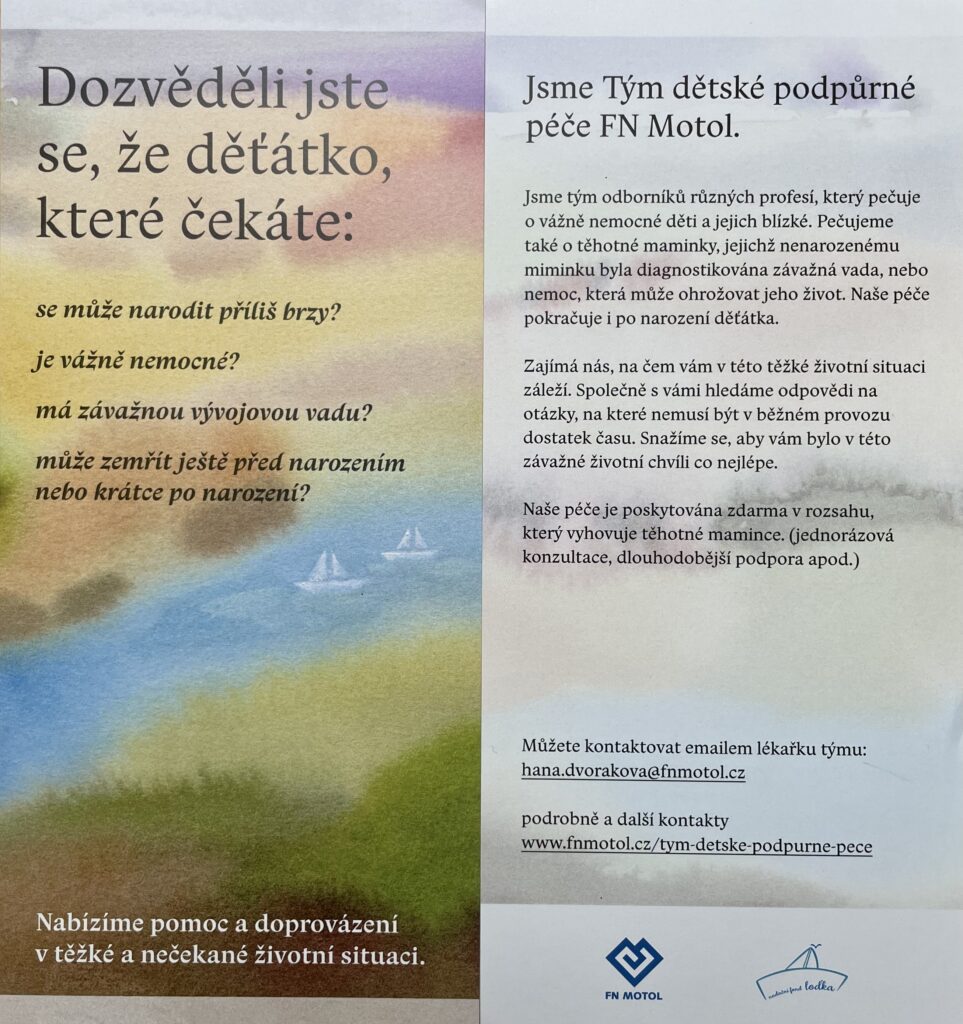With the ever-improving prenatal diagnostics, a serious life-limiting or threatening disease can be detected in an unborn baby already during pregnancy. Sometimes such diseases or birth defects are diagnosed only after the baby is born, or the baby's condition suddenly worsens for various reasons. According to the latest international recommendations, these children and their families can benefit from palliative care.1 This care aims to support the family in their difficult and unexpected situation. Parents sometimes have very limited time to spend with their child. One of the essential goals of perinatal palliative care is to ensure that parents spend this time as best as possible, as it suits the particular family.
Palliative care should be started as soon as a life-threatening or limiting condition of a child (including unborn children) is discovered, regardless of whether treatment is planned/initiated with the intention of curing the child. In such a case, palliative care should take place in parallel with care aimed at recovery.
According to the current definition of the World Health Organization (Integrating palliative care and symptom relief into paediatrics) palliative care increases the quality of life of the sick child and his family, promotes dignity and comfort, and can also positively influence the course of the disease.2
That is why it has been working in Motola since 2017 Pediatric Supportive Care Team. Our goal is to support seriously ill children and their relatives and offer help in the whole range of human needs, not only medical, but also psychological, social and spiritual. Once a child (including the unborn) is diagnosed with a life-limiting or life-threatening illness, the Children's Supportive Care Team can be involved in the care of him and his family, if the parents so wish. The team consists of a number of experts from various professions who can support the family and offer them professional help. A meeting with the Team can only be a one-time event, more often we accompany our families for a certain period of time and meet repeatedly. We always follow the needs of a particular family.
1International Standards for Pediatric Palliative Care: FromIMPaCCT to GO-PPaCS. Benini F, Papadatou D, et al. Pain Symptom Manage. 2022 May;63(5):e529-e543.
2https://www.who.int/news-room/fact-sheets/detail/palliative-care
